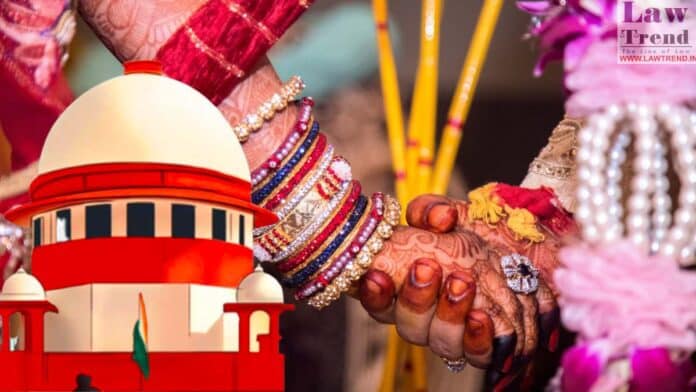The Supreme Court of India, in a significant ruling on Hindu Undivided Family (HUF) law, has held that the sale of joint family property by a Karta to meet debts incurred for a daughter’s marriage constitutes a valid ‘legal necessity’. A bench of Justices Sandeep Mehta and Joymalya Bagchi set aside a Karnataka High Court
To Read More Please Subscribe to VIP Membership for Unlimited Access to All the Articles, Download Available Copies of Judgments/Order, Acess to Central/State Bare Acts, Advertisement Free Content, Access to More than 4000 Legal Drafts( Readymade Editable Formats of Suits, Petitions, Writs, Legal Notices, Divorce Petitions, 138 Notices, Bail Applications etc.) in Hindi and English.




